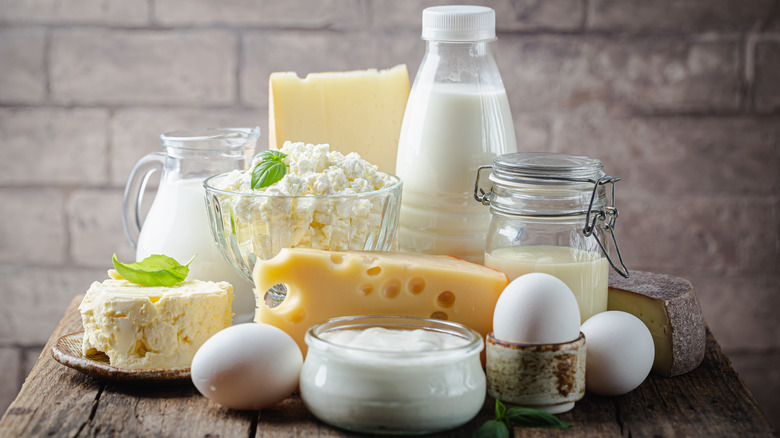If you have a tendency to experience nightmares, fear not — you’ve got some company. According to a 2010 study published in Sleep, 5.1% of the general population has at least 1 nightmare per week.
While we all know that having a nightmare is scary, what exactly is a nightmare? As defined by experts at the Mayo Clinic, “a nightmare is a disturbing dream associated with negative feelings, such as anxiety or fear that awakens you.” They are more frequent in children, but can also happen in adults, and typically occur in the second half of the night while you are in the rapid eye movement (REM) portion of your sleep. The main difference between a nightmare and a bad dream is that the level of disturbance caused by the nightmare will typically prompt you to wake up. While neuroscientists still debate what causes nightmares, there is general support for potential contributors, such as chronic stress or feelings of anxiety, mental health issues, sleep deprivation, certain kinds of medication, and medication withdrawal (via Sleep Foundation).
What researchers know about nightmares

A 2024 study published in the Journal of Clinical Sleep Medicine concluded that food intake before bedtime was associated with negative sleep effects in healthy adults. If you are the kind of person who tends to eat late dinners or midnight snacks, what kinds of food should you avoid?
A 2024 peer-reviewed study published in the science journal Frontiers in Psychology noted that, despite longtime common beliefs that food is associated with nightmares, there remains limited consistent evidence supporting this notion. However, based on this study of 396 undergraduate students, dairy was most frequently identified in association with disturbing dreams, impacting 39% to 44% of participants. It is worth noting, though, that a number of these participants were lactose intolerant, so that may have had an effect on the disturbance. Sweets were another top contender for causing weird dreams. Foods high in sugar, like cookies and ice cream, caused bizarre dreams in 30.8% of study participants.
Spicy foods were also singled out by the participants who had troubling dreams. A 1992 study published in the International Journal of Psychophysiology found that those who ate Tabasco sauce before bed experienced an increase in body temperature while they were sleeping. A spike in body temperature while sleeping is thought to impact brain activity and lead to nightmares. So it might be a good idea to steer clear of spicy foods like chili peppers and hot sauce before bed if you’re worried about having nightmares.
Better food choices before bed

At the end of the day, more research is needed to conclude with certainty whether dairy, sugar, spicy foods, or other types of foods can affect your dreams. If you feel hungry before bedtime, health experts generally warn that eating salty junk foods or sweets is not the best idea. Choose nutrient-rich foods, which will be less likely to negatively impact your metabolism and disturb your sleep patterns (via Healthline).
While some advise against eating anything at all late at night, there are some choices that are better than others (via Sleep Foundation). Some recommend eating a small snack about 30 minutes before bed, which can even help increase your metabolism in the morning. Focus on consuming a nutrient-dense mini-meal that’s about 150 calories. Since both bananas and almonds are high in magnesium, try having a banana with almond butter before bed. Magnesium can help regulate our internal clocks and help us get a better night’s sleep.
While oatmeal might feel like a typical breakfast food, it could be beneficial to have at bedtime, too. Oats contain not only magnesium but melatonin too, which is a sleep hormone. Fruits like pineapple and oranges have also been shown to increase melatonin production. Want something savory? Opt for nuts or seeds rather than reaching for potato chips, since high amounts of sodium have been associated with poor sleep.
Other ways to prevent nightmares

aslysun/Shutterstock
If you’re avoiding all possible food triggers before bed and still experiencing nightmares, make sure you have a healthy sleep routine established (via CNN). Try to go to bed and wake up at the same time each day, sleep in a cool dark room, and try something relaxing like meditation before bed. Take a look at your medication schedule and see if something you’ve been prescribed could be contributing to your disturbed sleep. If you’re feeling stressed before bed, write down your feelings in a journal before turning out the light. And just as it’s important to be careful what you’re eating before bed, it’s also important to be aware of any scary content you’re consuming before bed. Try to stay away from scary movies or television shows.
According to WebMD, changing behaviors has been proven effective for 70% of adults who experience nightmares. If you feel like you need more support around making changes or want professional treatment like psychotherapy, contact your healthcare provider.



